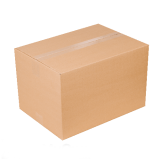Description
- Description
- Features and Benefits
- Specs
- Labels and SDS Forms
Alpine Dust Insecticide is the first and only Reduced-Risk, non-repellent insecticide dust for broad-spectrum control of crawling and stinging insects. This dual-action formula combines dinotefuran for fast-acting neurotoxicity with diatomaceous earth, which dehydrates insects on contact. Ideal for crack, crevice, void, and spot treatments, Alpine Dust kills pyrethroid-resistant bed bugs, ants, and wasps while remaining safer for people, pets, and the environment. Labeled for indoor and outdoor use in residential, commercial, and industrial settings, it’s a must-have for long-lasting insect control in sensitive areas.
- EPA Reduced-Risk insecticide—safer for people, pets, and the environment
- Fast-acting formula with dinotefuran and diatomaceous earth
- Targets bed bugs, ants, spiders, stinging insects, pantry pests & more
- Kills pyrethroid-resistant insects for superior pest control
- Lightweight dust for better coverage and more applications per pound
- For use in homes, hospitals, schools, nursing homes, and commercial settings
- Ideal for crack, crevice, void, and perimeter treatments
| ACTIVE INGREDIENT | Dinotefuran 0.25%, Diatomaceous Earth (including silicon dioxide, other oxides and moisture) 95% |
| TARGET PESTS | Ants, Bed Bugs, Bees, Wasps, Spiders, Pantry Pests, and most common crawling insects * See label for complete list |
| FOR USE IN | Apartments, Homes, Hospitals, Hotels, Industrial Buildings, Nursing Homes, Office Buildings, Schools, Stores, Supermarkets, Warehouses and other Commercial and Industrial Buildings and others * See label for complete list |
| APPLICATION | 0.16 oz. - 0.32 oz. per 10 sq.ft. * See label for complete application instructions |
| MANUFACTURER | BASF |
| EPA REGISTRATION | 499-527 |
Payment & Security
Your payment information is processed securely. We do not store credit card details nor have access to your credit card information.

